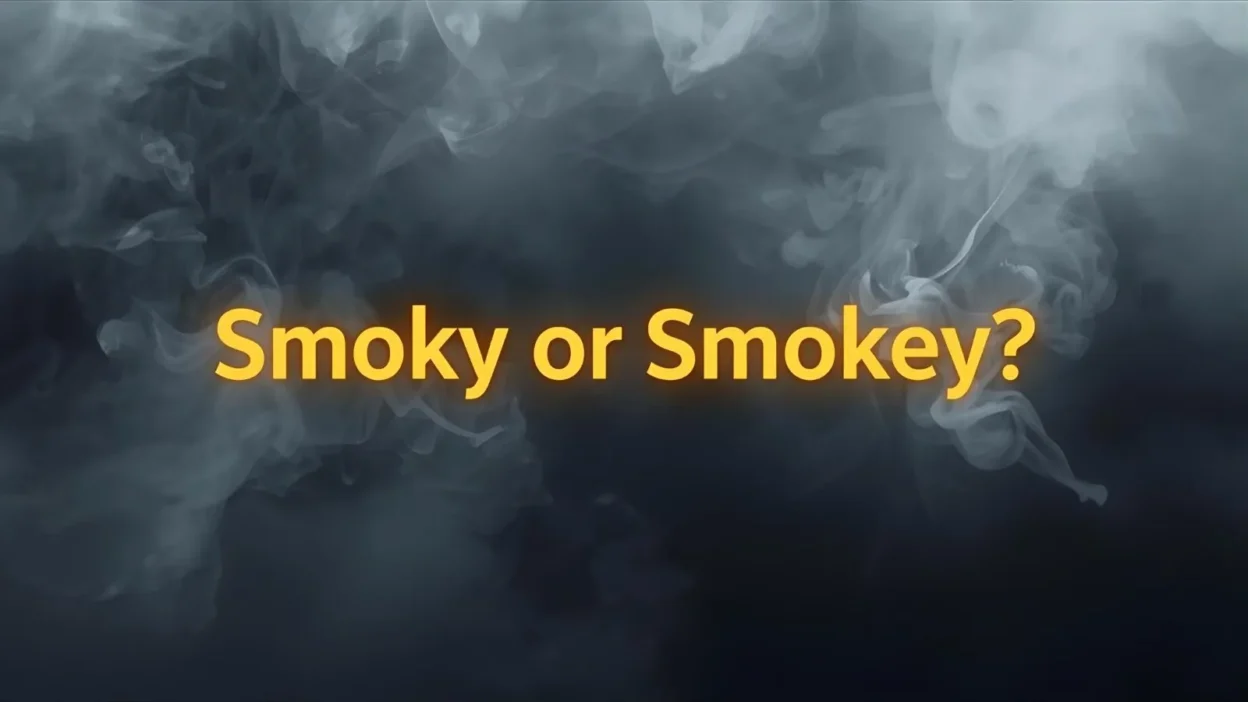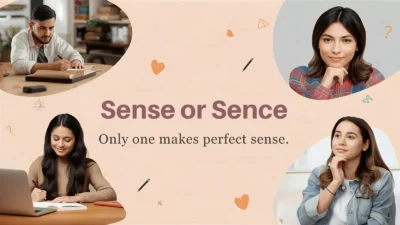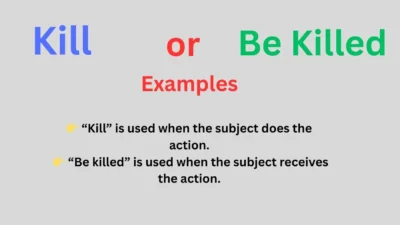Ever paused mid-text wondering, “Is it smoky or smokey?” 😅 Don’t worry — I’ve been there too!
If you’re searching for the correct spelling, you’re in the right place.
This guide clears up the confusion fast, showing you when to use smoky, when smokey fits, and why both spellings exist.
Let’s settle this spelling mystery once and for all!
Smoky or Smokey – Quick Answer ✅
The correct spelling in most situations is “smoky.”
It means filled with smoke or having a smoke-like color or flavor.
Example:
- “The room looked smoky after the candles burned out.”
- “She wore smoky eye makeup.”
👉 “Smokey” with an e is usually a proper noun — like Smokey Bear, the wildfire prevention mascot.
In short:
| Context | Correct Spelling | Example |
|---|---|---|
| General description | Smoky | The smoky mountains looked beautiful. |
| Name or brand | Smokey | Smokey Robinson is a legendary singer. |
The Origin of Smoky or Smokey 📜
The word “smoky” dates back to the 14th century, coming from the Old English smoca (smoke) + -y (characterized by).
It literally means “full of smoke.”
“Smokey” appeared later as a variant spelling, but it never became the official form.
Over time, “Smokey” gained popularity through names like Smokey Bear and Smokey Robinson, reinforcing it as a proper noun, not a general adjective.
British English vs American English Spelling 🇬🇧🇺🇸
Unlike color/colour or flavor/flavour, this word doesn’t differ between regions — “smoky” is correct in both British and American English.
Still, Americans often see “Smokey” in cultural contexts, while Brits stick to the dictionary form.
| Region | Preferred Spelling | Example |
|---|---|---|
| US | Smoky (general) / Smokey (names) | Smoky skies over California |
| UK | Smoky | A smoky London pub |
| Australia / Canada | Smoky | Smoky haze after bushfires |
👉 Tip: If you’re writing professionally or academically, always use smoky unless it’s a name.
Which Spelling Should You Use? 🧐
It depends on your audience and purpose:
- For general writing (blogs, essays, business): Use smoky ✅
- For brand names or people: Use Smokey (e.g., Smokey Bear)
- For social media or casual talk: Either might appear, but smoky is always correct.
If you’re unsure — go with smoky. It’s universally accepted and professional-looking.
Common Mistakes with Smoky or Smokey 🚫
Here are frequent mix-ups and how to fix them:
| Mistake | Correction | Why |
|---|---|---|
| “The air was smokey.” | “The air was smoky.” | Adjectives take -y, not -ey. |
| “Smoky Robinson concert.” | “Smokey Robinson concert.” | It’s his name! |
| “Smokey bacon flavor.” | “Smoky bacon flavor.” | Describing flavor → smoky |
| “Smokey room lighting.” | “Smoky room lighting.” | Visual description → smoky |
💡 Pro tip: If you can replace it with “foggy” or “dusty,” use smoky.
Smoky or Smokey in Everyday Examples 🌍
Emails:
“Please avoid using smoky colors in the design.”
News:
“A smoky haze covered the city after the wildfire.”
Social Media:
“Loving my new smoky eye look! 💄”
Formal Writing:
“The atmosphere was thick and smoky due to pollution.”
Brand/Name:
“Smokey Bear reminds us that only YOU can prevent wildfires!”
Smoky or Smokey – Google Trends & Usage Data 📈
According to Google Trends, “smoky” is searched 5x more often than “smokey.”
Top countries using smoky:
- United States 🇺🇸
- United Kingdom 🇬🇧
- Canada 🇨🇦
- Australia 🇦🇺
Top searches for smokey:
- “Smokey Bear”
- “Smokey Robinson”
- “Smokey makeup look”
In short: “Smoky” dominates professional and general use, while “Smokey” remains tied to names and pop culture.
| Keyword | Global Popularity | Common Usage |
|---|---|---|
| Smoky | 🔥🔥🔥🔥🔥 | Descriptive (color, air, food) |
| Smokey | 🔥🔥 | Proper names (people, mascots) |
FAQs
1. Is “smokey” ever correct?
Yes, but only for names like Smokey Bear or Smokey Robinson.
2. Is “smoky” a color?
Yes! It describes a soft gray tone — like smoky gray or smoky blue.
3. Why do people spell it “smokey”?
Because of famous names using that spelling, which spread the habit informally.
4. Which one should I use in a blog post?
Always use smoky, unless you’re quoting a name.
5. Is “smokey eye” wrong?
Technically yes — it should be “smoky eye,” though “smokey eye” is common in beauty contexts.
6. Is “smoky” an adjective?
Yes, it describes something filled with smoke or resembling smoke.
7. Does the meaning change between spellings?
No — only the usage changes (common adjective vs proper name).
Conclusion 🌟
So, smoky is your go-to spelling — clear, correct, and accepted everywhere.
Use smokey only for names or brands.
Next time you’re describing hazy air, dark makeup, or rich BBQ flavor, remember:
👉 It’s smoky, not smokey.
Simple, right? Keep your writing clean, your grammar sharp, and your meanings crystal clear. 🔥

Hi, I’m Ernest Hemingway, the author of GrammarNestly.com.
I’m a grammar expert and language enthusiast who loves making English simple and practical.
When I’m not writing about grammar, I enjoy reading, exploring new writing styles, and helping others improve their communication skills.



